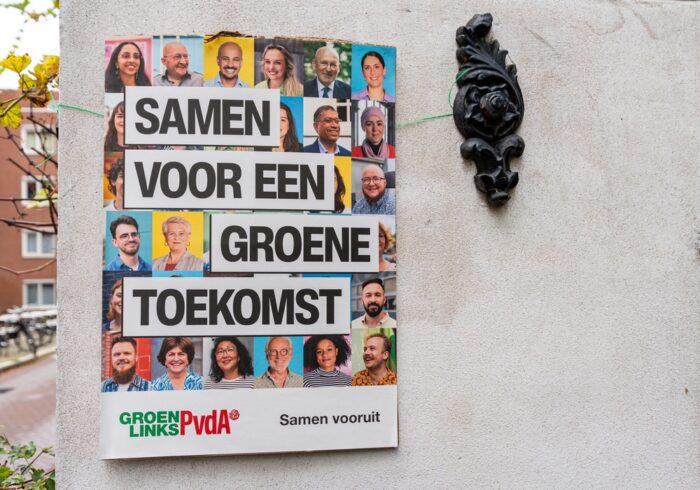Find all related Progressive Post
Progressive Post
Last Sunday’s election in Italy gave rise to the most right-wing majority in recent Italian history. The strongest party in the right-wing coalition, Brothers of Italy, has a clear post-fascist identity. The resulting government will represent a serious threat both for Italy and Europe. The temptation to normalise relations by the economic, institutional, and political establishment is already visible. For Progressives, this would be a fatal mistake.
The outcome of the Italian elections is known by now: the right-wing coalition, who perfectly understood the mechanism underpinning the new surreal electoral law won big, with 43 per cent of the votes in total, and will dispose of a comfortable majority in both chambers of parliament. Very low participation, which adds to the worries for democracy, saw only 63 per cent participation, the lowest turnout since 1948.
All in all, the score of the right-wing parties did not improve significantly. But the difference lies in the balance between its three main parties, which has hugely shifted. Instead of a younger Berlusconi, this time the leading force is the post-fascist Brothers of Italy (ECR), led by Giorgia Meloni, with 26 per cent, while Matteo Salvini’s Lega (8,7 per cent, ID) and Silvio Berlusconi’s Forza Italia (8,1 per cent, EPP) are coming second and third by far. The coalition calls itself ‘centre-right’, but as Cas Mudde rightly argues, a coalition led by two main far-right partis cannot be defined as ‘centre-right’, even if the Hungarian Prime Minister, Viktor Orbán, and his former Slovenian counterpart Janez Janša, and even EPP President Manfred Weber as selling it that way.
The election campaign was short, sudden and extremely ugly. Real issues, such as household energy bills, a likely economic recession, rising inflation, increasing inequalities and the ecological crisis were kept at the margin, despite attempts by parts of the centre-left to make them relevant. But today, those issues are there, on the table, and will remain unsolved, at least for the vast majority of the people, while the usual happy few will make gains.
The new government will be bad news for Italy, also because, as it always happens, ‘distractions’ will be created to turn heads elsewhere. One of them is the revision of the Italian Constitution, a masterpiece of democratic, social values and mechanisms, conceived by all democratic and antifascist forces after WWII. The most explicit goal of the right is to transform Italy into a presidential Republic with a directly elected president, who would, of course, have much more substantial prerogatives and power. ‘One alone man in the lead’ is not the right recipe for a country like Italy, as an even very superficial look at recent history perfectly illustrates. But there could be another, serious threat, concerning the interaction between the EU and national law. Amending the Constitution might put Italy in a similar situation as Poland.
Even if the right-wing coalition does not dispose of a 2/3 majority to amend the Constitution without a confirmative referendum, proposing an immediate unilateral constitutional change in an authoritarian and nationalistic direction is also an extremely telling sign, from those who come to power democratically, to then subvert the democratic order. We have examples from the past. Against those, the European Community (of women and men, not only of nations) was built. And here we are again, threatened.
The warning lights are all blinking. The new government, according to the vast majority of its composition, is anti-European, sovereignist, inspired by Orbán’s bravery to ‘defend his national interests’, anti-vax and therefore against a ‘Europe of health’. The vast majority of it (Brothers of Italy and Lega) voted against the NextGenerationEU and the Italian Recovery Plan (by far the most substantial one) and would have preferred, as Meloni said, a “direct intervention of the IMF” in Italy. Meloni’s affinity with Vox in Spain, Salvini’s close tights with Le Pen in France, Orban, their links with the Polish government, not even to talk of Salvini’s and Berlusconi’s close personal relations with the Russian president Vladimir Putin, are more than enough to be worried.
Yet, there are clear indications of an attempt to normalise all this. From the first, institutional declarations coming from big countries on possible common goals, to the clear political signs emanating from other political families, first of all, the EPP, the establishment seems to conform – as it happened already… 100 years ago. The EPP family, in particular, could already be on the way to sealing cooperation in view of the elections to the European parliament in 2024.
In a way, this has the merit of clarity. All the huge crises we are confronted with, need a new strong mindset. The Italian centre-left must be ready for a serious discussion about identity, values, goals, and leading principles. And about unity, including also what is left of the 5 Stars Movement. But so does the PES with his allies.On one hand, nationalism, the end of the EU as we know it, no new international multilateral order to promote peace, equality, financial and energy market rules, and ecological change. No social protection. No just and progressive tax system, no tax for the rich. Privatisation of public services. Fossil fuels proliferation. Or, on the other hand, a very strong international movement, that goes back to basic and courageous Social Democracy, that builds on international, democratic political movements and parties capable of generating a new positive hegemony in our societies. That gives real, sustainable answers to our people. It is a choice. There is no choice in between.
Photo credits: Shutterstock.com/M. Cantile
| Cookie | Duration | Description |
|---|---|---|
| cookielawinfo-checkbox-advertisement | 1 year | Set by the GDPR Cookie Consent plugin, this cookie is used to record the user consent for the cookies in the "Advertisement" category . |
| cookielawinfo-checkbox-analytics | 11 months | This cookie is set by GDPR Cookie Consent plugin. The cookie is used to store the user consent for the cookies in the category "Analytics". |
| cookielawinfo-checkbox-functional | 11 months | The cookie is set by GDPR cookie consent to record the user consent for the cookies in the category "Functional". |
| cookielawinfo-checkbox-necessary | 11 months | This cookie is set by GDPR Cookie Consent plugin. The cookies is used to store the user consent for the cookies in the category "Necessary". |
| cookielawinfo-checkbox-others | 11 months | This cookie is set by GDPR Cookie Consent plugin. The cookie is used to store the user consent for the cookies in the category "Other. |
| cookielawinfo-checkbox-performance | 11 months | This cookie is set by GDPR Cookie Consent plugin. The cookie is used to store the user consent for the cookies in the category "Performance". |
| csrftoken | past | This cookie is associated with Django web development platform for python. Used to help protect the website against Cross-Site Request Forgery attacks |
| JSESSIONID | session | The JSESSIONID cookie is used by New Relic to store a session identifier so that New Relic can monitor session counts for an application. |
| viewed_cookie_policy | 11 months | The cookie is set by the GDPR Cookie Consent plugin and is used to store whether or not user has consented to the use of cookies. It does not store any personal data. |
| Cookie | Duration | Description |
|---|---|---|
| __cf_bm | 30 minutes | This cookie, set by Cloudflare, is used to support Cloudflare Bot Management. |
| S | 1 hour | Used by Yahoo to provide ads, content or analytics. |
| sp_landing | 1 day | The sp_landing is set by Spotify to implement audio content from Spotify on the website and also registers information on user interaction related to the audio content. |
| sp_t | 1 year | The sp_t cookie is set by Spotify to implement audio content from Spotify on the website and also registers information on user interaction related to the audio content. |
| Cookie | Duration | Description |
|---|---|---|
| CONSENT | 2 years | YouTube sets this cookie via embedded youtube-videos and registers anonymous statistical data. |
| iutk | session | This cookie is used by Issuu analytic system to gather information regarding visitor activity on Issuu products. |
| s_vi | 2 years | An Adobe Analytics cookie that uses a unique visitor ID time/date stamp to identify a unique vistor to the website. |
| Cookie | Duration | Description |
|---|---|---|
| NID | 6 months | NID cookie, set by Google, is used for advertising purposes; to limit the number of times the user sees an ad, to mute unwanted ads, and to measure the effectiveness of ads. |
| VISITOR_INFO1_LIVE | 5 months 27 days | A cookie set by YouTube to measure bandwidth that determines whether the user gets the new or old player interface. |
| YSC | session | YSC cookie is set by Youtube and is used to track the views of embedded videos on Youtube pages. |
| yt-remote-connected-devices | never | YouTube sets this cookie to store the video preferences of the user using embedded YouTube video. |
| yt-remote-device-id | never | YouTube sets this cookie to store the video preferences of the user using embedded YouTube video. |
| yt.innertube::nextId | never | This cookie, set by YouTube, registers a unique ID to store data on what videos from YouTube the user has seen. |
| yt.innertube::requests | never | This cookie, set by YouTube, registers a unique ID to store data on what videos from YouTube the user has seen. |
| Cookie | Duration | Description |
|---|---|---|
| COMPASS | 1 hour | No description |
| ed3e2e5e5460c5b72cba896c22a5ff98 | session | No description available. |
| loglevel | never | No description available. |


